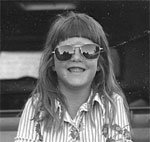Watch video of the session here.
As tools, methods, and approaches for visualization have proliferated in recent years, digital humanists responded by asking “what is visualization in the humanities” (HASTAC, 2013)? Indeed, a range of work examines the implications of visualization with and for the humanities: Viégas et al (2007) explored the intersections of scalability, expertise, and access with respect to IBM’s Many Eyes; Manovich et al (2007) explored how software development can assist visualizing big data; Ndiaye et al., (2013) investigated how crowdsourcing supported the aims of the CI-BER project; and, Patel (2013), Cairo (2014), and Sula (2012) took up separate discussions of the ethical dimensions of visualizing data.
Sharing a common interest in such issues, rhetorical approaches emphasize how visualization functions heuristically for analyzing and reconstituting the relationships between genres, agents, tools, and audiences within practices of literacy that are culturally, historically, and geographically contingent (e.g. Cushman, 2013; Potts, 2013). While promising, such approaches are not without their complications. This roundtable panel features six lightning talks—provocations rather than explications—that address the intricacies of visualizing data in rhetorical studies and the humanities writ large. Each panelist shares a specific approach or challenge arising from research projects in visualization. Following these brief provocations, we will initiate a robust discussion with attendees about effectively and collectively addressing visualizations of rhetorical activity.
Speaker 1: Visualizing Qualitative Data
The particularity of qualitative inquiry is powerful, but also a source of scientific angst, resisting generalizability. Speaker 1 explores approaches that effectively visualize qualitative data—namely ethnoarchaeology and visual ontography—where datasets afford both fruitful cross-case comparisons and generalizable analyses.
Speaker 2: Visualizing Environmental Justice
Mapping technologies have emerged as a popular means of identifying environmental justice (EJ) hotspots. Speaker 2 focuses on the limitations and affordances of mapping EJ hotspots within urban and rural settings and the material effects of these efforts on shaping environmental policy.
Speaker 3: Visualizing Computational Rhetoric
Speaker 3 will report on a project that computationally analyzes rhetorical moves operating in a large text dataset and describe the challenges of producing useful, useable displays for analysts and conveying the rich communicative strategies found in natural language texts.
Speaker 4: Visualizing Firefighters’ Literacies
Drawing from a study a digital-ethnographic study of firefighters, Speaker 4 shares how visualizing interrelationships between genres, agents, and artifacts offered a view of literacy activities that unsettled local conceptions of practice.
Speaker 5: Visualizing Viral Circulation
Drawing on her current attempt to code 1000 digital pictures of a viral image and visualize research findings in a series of maps and graphs, Speaker 5 explores the complications of visualizing viral circulation.
Speaker 6: Visualizing Performance Ethnography
Speaker 6 engages the concepts of chora, affect, and performance ethnography to investigate the post-production process of Alma Har’el’s 2011 documentary Bombay Beach as a location for reconceptualizing the visualization of marginalized subjects.






